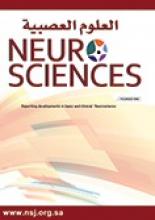Abstract
In minority world countries, autonomy is central to client focused rehabilitation, as it represents a prerequisite for effective participation in the process of rehabilitation. The diverse and dynamic paradoxes within the “autonomy paradigm” will ensure its safe application and survival in such communities. However, the strong family relationships and different cultural backgrounds of majority world countries motivate us to conclude that a “patient-family interactive deliberative process” based on accommodation and negotiation is more acceptable, reliable and implementable in these communities. Our suggested model of decision making is more convenient, particularly in cases where competency is compromised by cognitive dysfunction, political or religious restrictions. The insistence on absolute autonomy beyond such borders could be counter productive for both patients and health care personnel. Clearly, the need for further research is paramount, as a deeper understanding of the various cultures and subcultures is essential for developing a more useful structural framework for rehabilitation.
- Copyright: © Neurosciences
Neurosciences is an Open Access journal and articles published are distributed under the terms of the Creative Commons Attribution-NonCommercial License (CC BY-NC). Readers may copy, distribute, and display the work for non-commercial purposes with the proper citation of the original work.






